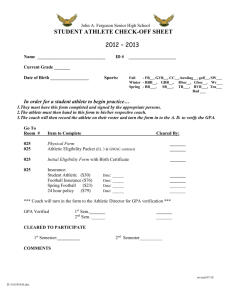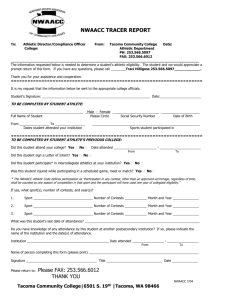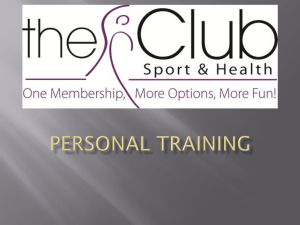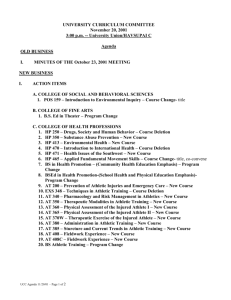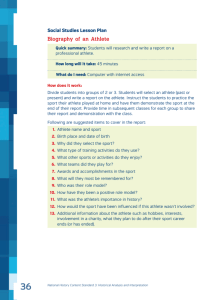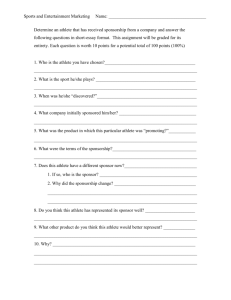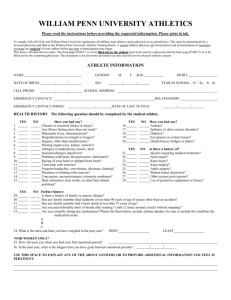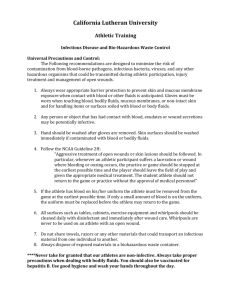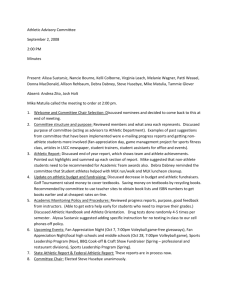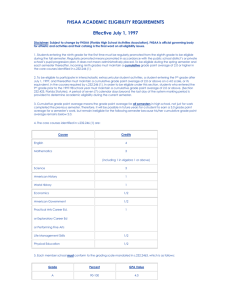Career plan of an athlete - Oxford United Youth & Community Sports
advertisement
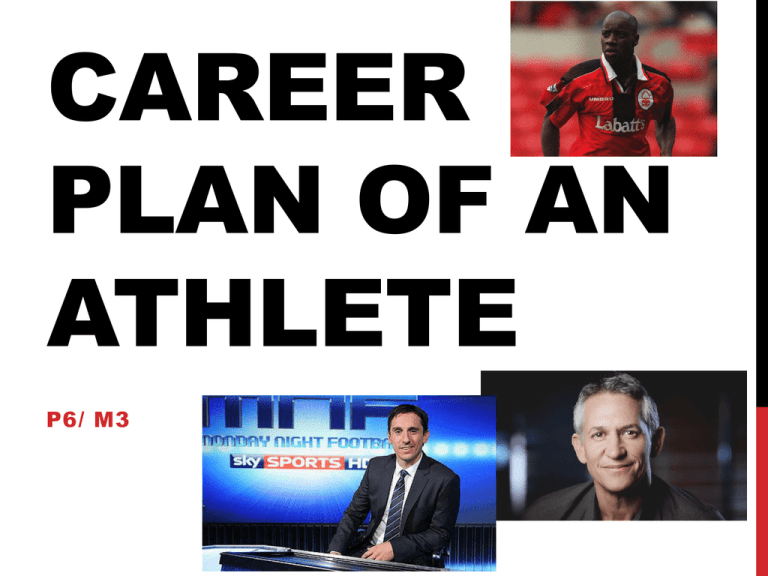
CAREER PLAN OF AN ATHLETE P6/ M3 INTRO: As with the majority of sporting careers injury, illness or natural progression to retirement means that the athlete has to (depending on the nature of the sport): plan for such circumstances. Which means that having GOALS, making a SWOT analysis and having a SECOND CAREER plan are vital. TASK… Research a professional athlete within a sport of your choice, who have successfully planned their career. (This will be part of the final assessment so make it efficient, but worth while). GOAL SETTING- IN ORDER TO ACHIEVE SUCCESS, ATHLETES MUST HAVE A CLEAR PLAN OF WHERE AND HOW THEY ARE GOING TO GET THERE… Long term Goals: - First goals that need to be set - 6 months/ 5 years - Objective statement that can be measured: E.G: to score 20 goals this season. - Yet there needs to be review dates to check progress (after 5 games) SMART Goals: Specific Measurable Achievable Realistic Time- framed Medium term Goals: - These are set to build up to the long term goals, last usually around 6 months. - E.G: to improve to 14.3 for Illinois Agility run- 2 months Short term Goals: - 1 day to 1 month - Build up to medium goals and contribute to long term - Specific goals such as: hit the target 6 times in todays game SWOT AND NEEDS Once a path has been identified, an ANALYSIS athlete needs to identify what they need to do in order to be successful. Strengths This requires a SWOT analysis. • What are you good at Weaknesses • What areas do you need to develop Opportunities • What opportunities are available to you Threats • What competition is there that may be a barrier to you achieving this goal The process is the same for PLANNING THE ATHLETIC CAREER an athletic career plan and an alternate career path. However, the details you look into will be slightly different for each one For an athletic career plan you need to look at: Technical skills • the techniques you can/cannot perform, and those you need to be successful Fitness levels • Your fitness levels in comparison to what is necessary to be successful in your sport. Psychological aspects, such as • Type A or B, • Aggression control • Motivation etc PLANNING A SECOND CAREER For an alternate career path, you need to look at: Practical skills that are relevant to the career •Eg: coaching, teaching, instructing skills Key and Basic skills, such as • • • • • IT Working in teams, Organisation Communication Literacy, Numeracy Goal Setting: learners need to produce a career plan covering an individual’s career as an athlete and their career outside competitive sport. - Types of goals Short term goals Medium term goals Long term goals learners need to explain factors involved in career planning for an athlete. These include Swot analysis - Athletic career planning - Second career planning goal setting, SWOT: selfand needs analysis, athletic career planning and second career planning.
